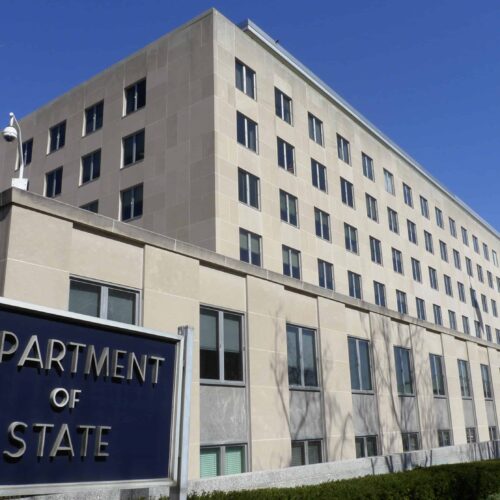Introduction
The Center for Public Integrity is a nonprofit newsroom that investigates betrayals of public trust. Sign up to receive our stories.
The U.S. Department of State has agreed to settle a federal lawsuit and pay the Center for Public Integrity nearly $7,000 stemming from failures to properly respond to five Freedom of Information Act requests made by senior reporter Carrie Levine.
The State Department’s payment will offset costs associated with Public Integrity attorney Peter Newbatt Smith’s lawsuit seeking access to hundreds of pages of government documents.
Levine used some of these documents to report for, then write, a May 2018 story headlined “How a sanctioned Russian bank wooed Washington.”
The article revealed how the sanctioned bank, VTB, attempted to cozy up to a high-ranking State Department official. Another Russian bank, Sberbank, also lobbied State Department officials, according to documents obtained by Public Integrity via its FOIA lawsuit.
But the State Department routinely thwarted Public Integrity’s attempts, which began in mid-2017, to obtain this critical information.
Although the State Department initially agreed Public Integrity’s FOIA request merited “expedited processing,” agency officials soon predicted it would take six or more months to respond.
Smith sued the State Department in late 2017 when the agency still hadn’t produced requested records. With a federal judge poised to consider the matter in court, the State Department reached a compromise with Public Integrity in February 2018 and soon began releasing documents responsive to Levine’s FOIA requests.
At its core, FOIA gives journalists and non-journalists alike the “right to request access to records from any federal agency” in the spirit of keeping Americans “in the know about their government.” By law, federal agencies are generally required to respond to FOIA requests within 20 business days.
But the State Department has proven unwilling to follow — or incapable of following — this law. A massive backlog of FOIA requests is the culprit, State Department officials have explained. Several subsequent FOIA requests Levine has sent to the department won’t be processed for three years, officials have estimated.
“If they persist in that position, I am fully prepared to sue them again,” said Smith, who also works as Public Integrity’s research editor.
While a $6,868.60 judgment for attorney’s fees certainly won’t bust the State Department’s budget, there is now “some reason to believe that attorney’s-fee demands and awards can prod federal agencies to change their behavior and be more responsive to FOIA requests,” Smith said.
Public Integrity consistently ranks among the news media leaders in its use of FOIA litigation to obtain documents and data from government agencies. Only The New York Times and Jason Leopold, now with Buzzfeed, have filed more FOIA lawsuits during the past two decades, according to a study by Syracuse University’s Transactional Records Research Clearinghouse.
Read more in Inside Public Integrity
#UkraineDocs
From Ukraine to the U.S. government, Public Integrity journalists fight for open records
New court ruling underscores years of Freedom of Information Act victories


Join the conversation
Show Comments